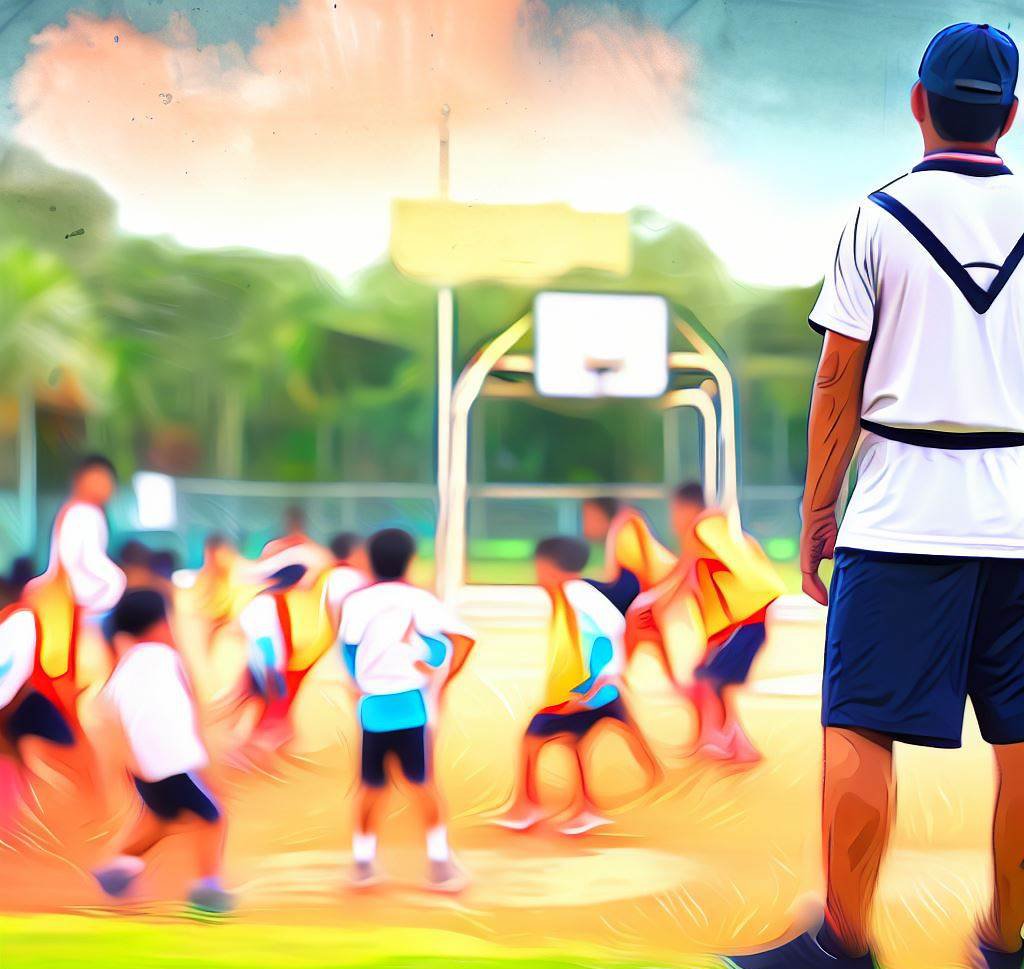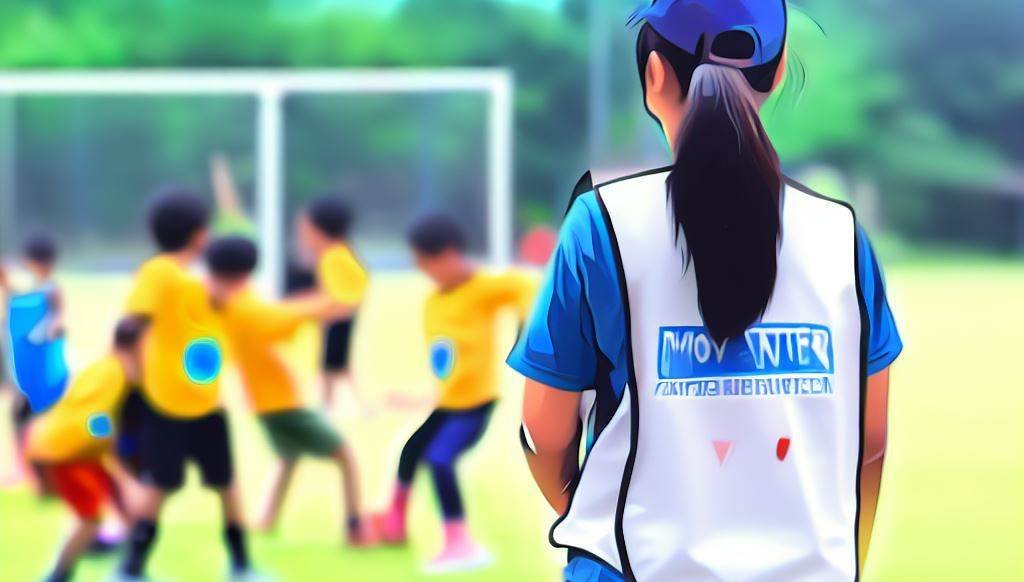Role of a Camp Monitor
A camp monitor plays a crucial role in the management and execution of activities within a summer camp or similar. Their work encompasses a variety of tasks, from supervising and leading recreational and sports activities, to ensuring the safety of participants and fostering a positive and inclusive environment. In addition, the monitor acts as a mediator between campers and the camp administration, and in many cases, also contributes to the planning and organisation of activities.
Importance of the Camp Monitor
The presence of a qualified and competent camp monitor can make a significant difference to the overall camp experience. The monitor not only ensures that activities are carried out in a safe and organised manner, but also plays an essential role in creating an environment in which campers can learn, grow and enjoy themselves. Their ability to interact effectively with participants, resolve conflicts and foster teamwork and inclusion makes the camp experience memorable and enriching for all involved.

Basic Requirements
Age and Residency
Minimum age requirement
To become a camp monitor, it is generally required that the candidate is of legal age, i.e. at least 18 years old.
Residency or nationality requirements
Depending on the country and the camp, it may be necessary to have residence in the country where the camp takes place or to have a valid work permit.
Educational background
Levels of education required
While specific educational qualifications are not always required, many camps prefer candidates with at least a high school diploma.
Additional courses and certifications
Certifications in first aid, outdoor management or childcare related courses may improve your chances of being selected.
Previous experience
Experience in similar roles
Previous experience working with children or in camp-like settings is often a desirable requirement.
Volunteering and other relevant activities
Experience in volunteering related to children or sports can also be a positive factor in selection.
Each camp will have its own specific requirements, but these are some of the most common ones that might be expected for someone interested in becoming a camp monitor.
Essential Skills
Communication Skills
Communicating effectively with children and adolescents
One of the most important skills for a camp monitor is the ability to communicate effectively with children and adolescents. This involves not only speaking clearly and understandably, but also listening and understanding the needs and concerns of young people.
Communication with parents and staff
In addition, a good monitor must be able to communicate effectively with parents and other camp staff to ensure that everything runs smoothly.
Leadership and Teamwork
Ability to lead and motivate
Leadership is key to the role of a monitor. You must be able to manage activities, motivate campers and maintain a positive atmosphere.
Ability to work in a team environment
Working well in a team environment is crucial. Monitors often have to collaborate with each other and with other camp staff to carry out activities and solve problems.
First Aid and Safety
Basic first aid knowledge
Basic first aid skills are essential to deal with any emergency situation that may arise, from cuts and scrapes to more serious situations.
Safety protocols
Camp leaders should be familiar with camp safety protocols, such as emergency evacuations and fire procedures, to ensure the well-being of all campers.
Possessing these essential skills will prepare you to meet the many challenges of being a camp monitor and help ensure that campers have a safe and enriching experience.
Certifications and Training
First Aid
Recommended courses
While not a requirement at all camps, first aid certification is highly recommended. These courses generally cover topics such as CPR, wound care and emergency medical management.
Group Management and Dynamics
Techniques and strategies
Some camps offer or recommend courses in group management and dynamics to help camp leaders better manage campers. These courses may cover topics such as conflict resolution, team building and creating an inclusive environment.
Safety and Protocols
Specific certifications
Depending on the type of camp, additional certifications may be required. For example, if the camp involves water activities, certification in water rescue may be required.
In summary, while some of these certifications and trainings may not be mandatory, possessing them will increase your chances of being hired and better prepare you for the responsibilities of the position.
Selection Process
Interviews
Common questions and preparation
The first step in the selection process is usually an interview, either in person or online. Here, candidates may face questions related to their previous experience, leadership skills and ability to handle difficult situations. Preparing for this step is crucial, so it is advisable to review common interview questions and have concrete examples ready to demonstrate your skills.
Tests and Assessments
Aptitude and competency tests
Some camps may include aptitude tests or practical assessments as part of their selection process. These may cover topics such as first aid, safety and group dynamics. The aim is to test both your theoretical knowledge and your ability to apply it in practical situations.
Checks and References
Importance of work and personal references
Before you are hired, you may be asked to provide work or personal references. These references are important to confirm your experience and skills, so be sure to choose people who can speak positively about your ability to perform the role of camp monitor.
The selection process to become a camp monitor can be rigorous, but each stage has its own specific purpose to ensure that the candidates selected are the best suited to ensure a safe and rewarding camp experience for all participants.
Professional Development Opportunities
Additional Courses and Certifications
Options to enhance your skills
Once you become a camp monitor, the opportunities for professional development don’t end. You can consider taking additional courses or obtaining certifications that train you in specialised areas, such as water sports, climbing or outdoor management. These additional skills not only make you more valuable as a monitor, but can also open doors for leadership roles or specialisation within the camp.
Promotions and Other Opportunities
How to advance your career
With additional experience and training, you may have the opportunity to move into more responsible positions, such as activities coordinator, assistant director or even camp director. In addition, experience as a camp monitor is highly transferable and can be valuable in a variety of related fields, such as education, outdoor recreation and event management.
Being a camp monitor is not just a seasonal job; it can be the starting point for an enriching career in a variety of areas. Keeping a focus on professional development will allow you to make the most of the opportunities this experience can offer.

Working as a Camp Monitor in the USA
On the Greatcampjobs website you can find many vacancies for camp leaders in the USA. And on this other website, you can also always find many job offers.
Specific Requirements
Work Visa
If you are a non-US citizen, you will need a specific visa to work as a camp counselor in the US, usually the J-1 visa.
Background Checks
In the United States, it is mandatory to undergo a criminal background check and, in some cases, a substance abuse check as well.
Cultural and Regulatory Differences
Camp Environment
Camps in the United States can vary significantly in terms of culture and focus, from specific skills camps to religious camps to special needs camps.
Regulations and Accreditations
Camps in the United States generally follow accreditation standards set by organisations such as the American Camp Association (ACA).
Opportunities and Benefits
Salary and Compensation
Salary can vary depending on the state and type of camp, but often includes room and board in addition to a stipend or salary.
Networking and Experience
Working at a camp in the United States offers the opportunity to make professional contacts and gain valuable work experience, especially if you are interested in fields such as education, psychology or recreation.
Challenges and Considerations
Cultural Adaptation
Being familiar with American culture and social expectations can be crucial to performing effectively as a camp monitor.
Costs and Logistics
It is important to consider the costs associated with travel, lodging (if not included) and other possible expenses such as health insurance.
Working as a camp monitor in the United States presents a number of unique opportunities but also specific challenges. By understanding the differences in requirements, culture and opportunities, you can better prepare yourself for a successful and enriching experience.
Conclusion
Being a camp monitor is an important responsibility that requires a combination of skills, certifications and experience. From the ability to communicate effectively with campers and colleagues to the ability to lead and problem solve, the demands of the position are varied but crucial to the success of the camp.
If you have a passion for working with young people and are willing to invest in your personal and professional development, being a camp monitor can be a rewarding career choice. Not only will you have the opportunity to make a difference in the lives of campers, but you will also gain skills and experience that will be valuable in whatever career field you choose to pursue.
In short, being a camp leader offers a unique opportunity to positively impact the lives of young people while developing yourself both personally and professionally. Now that you know what it takes to be successful in this role, why not take the next step and start your journey in this rewarding profession?

